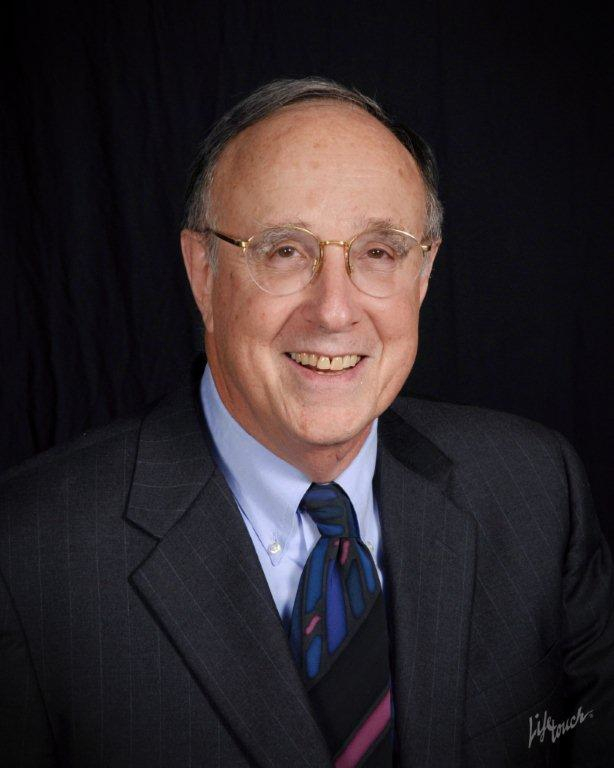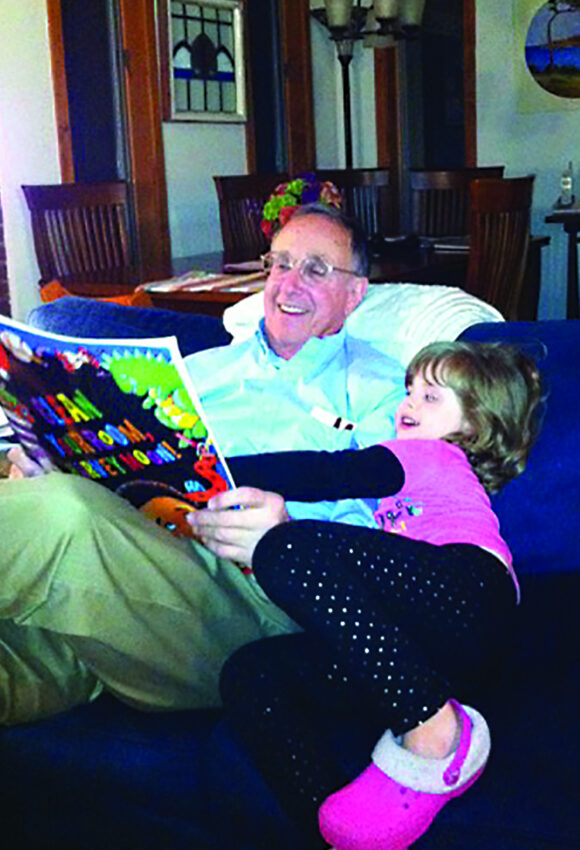
As a college professor specializing in military history, Dick Kohn is used to exploring the successes and failures of the past and looking at them through a current lens. But Kohn’s history with cancer is one area of his past that he is glad to see in the rearview mirror.
Kohn, 81, a UNC professor emeritus of History and Peace, War, and Defense, fought his own battle with cancer in the early 2000s. He would occasionally feel a painful jolt in his neck. After mentioning this to some physician colleagues, he underwent a scan, which revealed a tumor in one of his submandibular glands. He discussed his case with a team at Johns Hopkins, and knowing he lived in North Carolina at the time, they praised the team at UNC as a choice for his surgery.
“I asked [the Hopkins surgeon] ‘where would you go if you had it?’ ” Kohn said. “He said he’d ask his fellow for a mirror.’ I replied that ‘since you can’t operate on yourself, what about UNC? He said he knew the people at UNC, and they are outstanding.’ ” Kohn said that was all he needed to know, and he underwent surgery at UNC in 2004.
“It was a fabulous, successful surgery,” Kohn said. “I’d probably have died if I didn’t take care of it.”
Creating a treatment plan
After the surgery, Kohn met with UNC Lineberger’s Julian Rosenman, MD, a thoracic oncologist, who outlined further treatment options that included radiation, a recommendation due to the limited side effects.
“They walked me so carefully through the decision, as to whether to do radiation, so I could come to my own conclusion,” he said. “If I didn’t do radiation, and the cancer returned, I’d have felt like a fool.”
In keeping with his career as a historian and author, Kohn’s analytical nature served him well as a patient, leading him to be a more active participant in his health care. Kohn was born in 1940 during World World II, and he said that studying war and national security was a useful way for him to apply history to current issues. Those current issues came to a head in 1962, when Kohn was in graduate school at the University of Wisconsin, and the Cuban missile crisis turned his attention toward combining scholarship with public service.
“I was in a seminar in early American history, listening to a three-hour presentation on 18th century Massachusetts county government, when I realized I didn’t want to spend my life doing this stuff while the world’s about to blow up,” he said. Kohn continued his graduate work with a new focus, studying with both military and 18th century historians on the faculty. His professional life brought him to Washington, D.C., where he served at the Pentagon as the chief of Air Force history for the United States Air Force.
Kohn had focused generally on American military history in his teaching and writing. After nearly a decade working for the government, he joined the faculty at Carolina, where he spent 20 years teaching before moving to emeritus status.
‘This is a community that has the best interests of its patients at heart’

Kohn’s confidence in his UNC colleagues and health care team continues to this day; he still gets regular checkups with the oncologists at the North Carolina Cancer Hospital, the clinical home of UNC Lineberger. Kohn said he still appreciates the thorough approach to cancer care he received at UNC, and he said it’s evident in other health care areas, as well.
“I’ve been a ‘frequent flier’ of medical care and had some surgeries, and I’ve noticed how analytical and on top of their field these people are and how detailed they can be in explaining the choices that we patients have,” Kohn said. “This is a community that has the best interests of its patients at heart.”
Kohn encourages other patients with cancer to take advantage of the knowledge and expertise of the health care community, ask questions and be an active participant in their own health.
“If you do that, and if you make every effort possible to follow the directions and advice, even if you are a patient with the most dangerous of diseases, you can put your mind at ease that you’re doing everything possible for your own health and your family,” he said. “It may cost a lot of time, effort and money, but it’s necessary given the age we live to and the kinds of medical problems that come with it. My philosophy is you can’t always control the cards you’re dealt in life, but you can play them to the best of your ability.”
